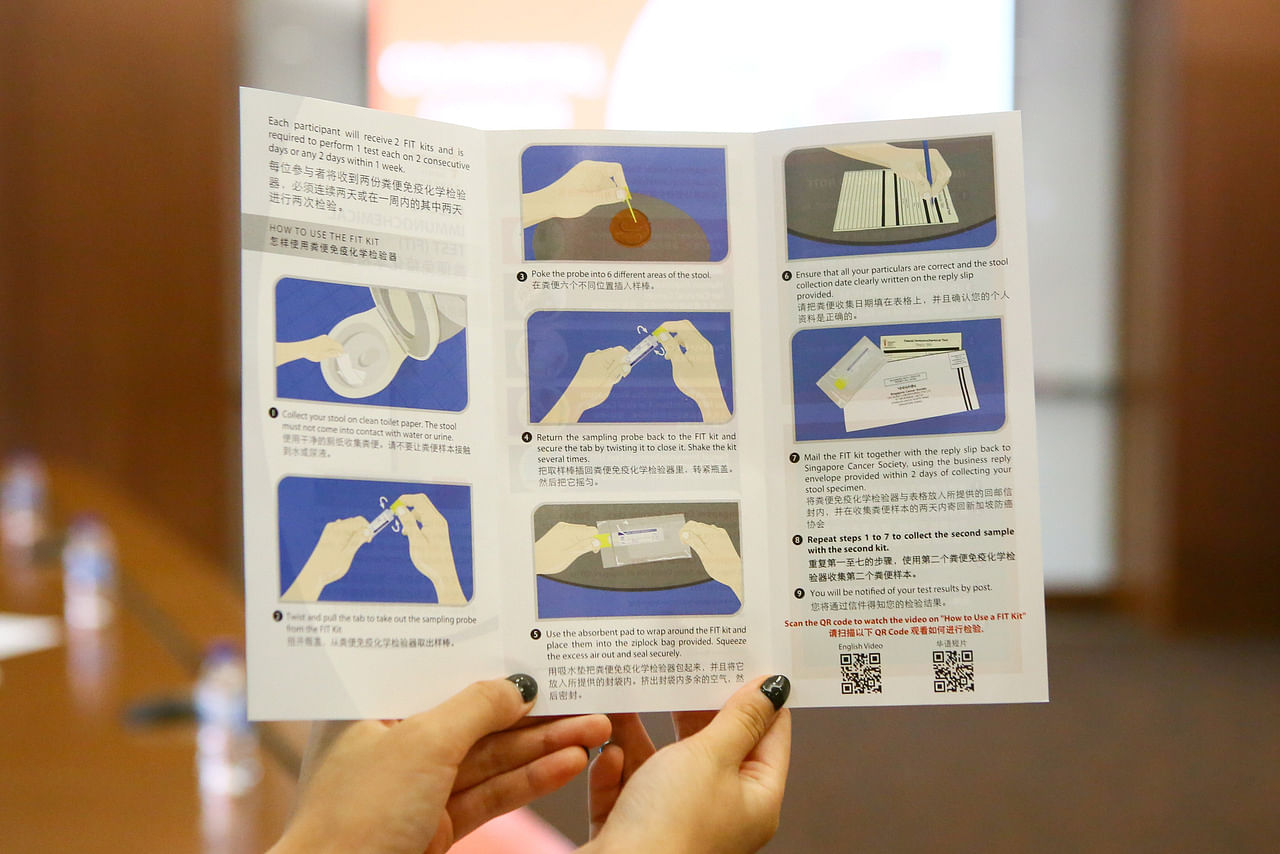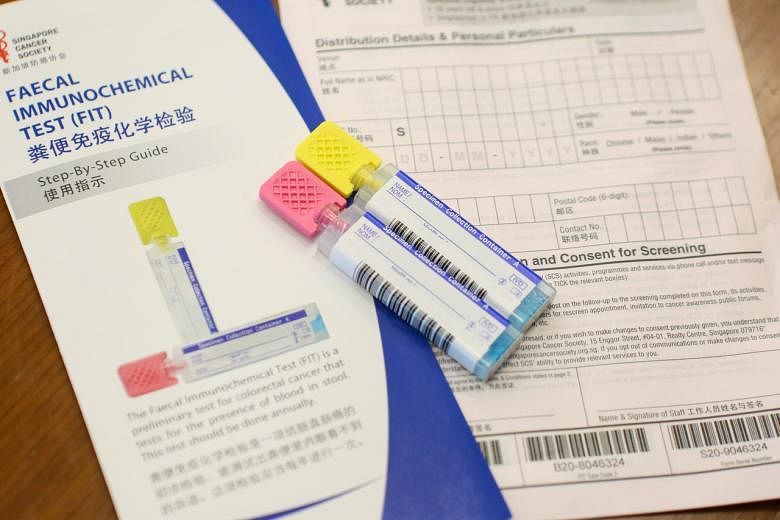SINGAPORE - Many Singaporeans are not taking or completing the necessary tests that allow for the early detection of colorectal or colon cancer, one of the top diagnosed cancers in the country, a study has found.
Around seven per cent of 100,000 people screened test positive in the faecal immunochemical test (Fit), which indicates a high risk of developing colorectal polyps and cancers, Associate Professor Tan Ker Kan, head and senior consultant at the Division of Colorectal Surgery at National University Hospital (NUH) told reporters at a media briefing on Tuesday (March 16).
Figures from recent years show that colorectal cancer affects more than 2,000 individuals a year even though early screening is associated with "superior oncological outcomes".
"Regular screening can help to detect colorectal cancer early, when it is most treatable and curable. Screening using Fit and colonoscopy is important as these polyps can be detected and removed before they become cancerous," said Prof Tan.
The Fit consists of two stool sample kits, which have to be completed over two different days within a week.
A positive result indicates that a small amount of blood is present in the stool sample, and the individual should be referred for colonoscopy at the nearest public hospital.
Fit kits are regularly distributed by the Singapore Cancer Society, screening more than 68,000 people in 2019, and more than 50,000 people last year.
However, many high-risk patients are deterred from going for colonoscopy owing to perceived high costs and concerns over bowel preparation, according to a study led by Prof Tan.
The subsidised cost of a colonoscopy is between $550 and $700, said Prof Tan.
However, preparation for the procedure could take between four and six hours, and involves laxatives.
The patient has to endure bouts of diarrhoea, which may be inconvenient and uncomfortable, making it the biggest challenge for many, said Prof Tan.

The study, conducted last year by clinicians from NUH, National University Cancer Institute, Singapore, along with researchers from the National University of Singapore's Saw Swee Hock School of Public Health, found that only 50.8 per cent, or half of those with a positive Fit, underwent colonoscopy.
It looked at 402 patients, aged between 46 and 89, who were referred to NUH for follow-up consultation and colonoscopy from 2017 to 2019.
The study found that reminders from healthcare professionals, as well as social support from family and close friends could help to persuade high-risk individuals to go for screening.
Another study, also led by Prof Tan, found that 14.2 per cent of those with double positive Fit results had colorectal cancer. The study also analysed the data of over 1,500 patients who were aged 50 and above with at least one positive Fit result from January 2017 to September 2019.
This means that there is a greater urgency for patients to go for colonoscopy as soon as they can, said Prof Tan, adding that NUH and NCIS are looking to expedite the procedure for patients with double positive results to ensure the prompt detection of colorectal cancer and polyps.


